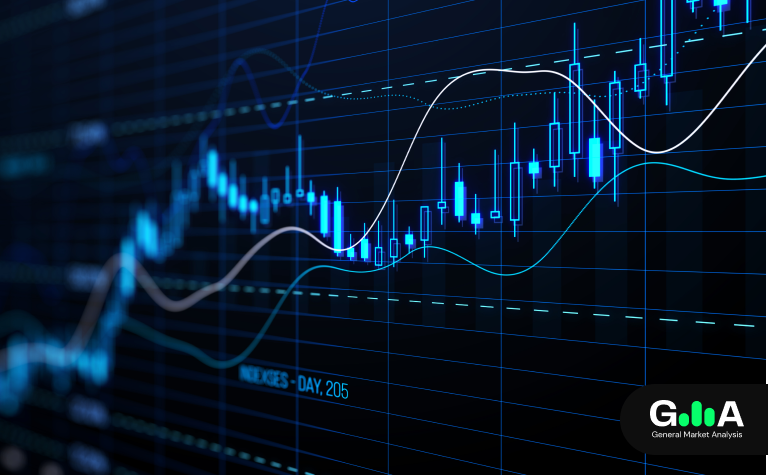The only way to do great work is love what you do – Steve Jobs
Most have never envisioned becoming traders or demonstrated a connection to the markets. In fact, it’s likely the majority were introduced to trading through friends or colleagues, enticed by the idea of financial freedom.
Many, however, fail to acknowledge what it takes to trade successfully. The process of becoming a trader, and remaining one, is an enormous challenge.
A steadfast passion, and unbending inquisitiveness for the markets, is a prerequisite to becoming a trader. Merely the desire to create financial freedom is often insufficient.
Passion
Aspiring traders enter the markets with ideas of success, traveling to distant lands and living life on their terms. Most, nevertheless, fall short and tend to throw in the towel before achieving this goal.
Some erroneously believe they need only learn an ABC strategy. While a few manage to succeed for a while simply adhering to a strategy’s rules of engagement, the problem arises when markets change and a drawdown occurs. Among other things, this can lead to a phase of destructive revenge trading, even in the strongest of minds.
Trading is, and always will be, a never-ending learning process. Like most endeavours, without passion and the right dose of curiosity, the process of trading will soon become a bore and your subconscious mind will find ways to make you stop.
When the passion goes, the motivation to succeed generally dies with it.
The learning curve
Trading should be thought of as a slow marathon, rather than a sprint.
The learning curve can be extraordinarily long to become a trader. Some do achieve consistency within two years; others reportedly have taken more than 10 years. Employing the skills and experience of a mentor can help shorten the learning curve, though this is by no means guaranteed.
New traders soon realise there are essentially three ways to trade: discretionary, nondiscretionary and partial discretionary. Discretionary trading requires intuition which takes a long time to develop. Nondiscretionary involves a mechanical approach, sometimes referred to as ‘system’ or ‘algorithmic’ trading. Partial discretionary, where most traders reside, has a system generate a signal, with the trader using his/her discretion to determine if the signal is valid in the current market conditions.
Most favour a technical approach, a form of financial analysis that uses patterns in market data to identify trends and make predictions. For detailed articles regarding technical analysis, check out: https://www.icmarkets.com/blog/category/forex-trading-101/.
Following system selection, traders begin to understand trading is simply not ‘pattern hunting’. A strong psychological element exists.
Learning to regulate psychological conflicts is as important as developing money-management principles, sound risk management and a well-defined trading system. Having all components function side by side is paramount to successful trading. Unfortunately, trading psychology is often disregarded. Many traders mistakenly believe developing solid trading methodologies is all that’s required to profit. If you’re incapable of governing your mind while operating in the market, regardless of the trading system’s success rate, the odds of becoming profitable is exceedingly low. The following is a particularly useful article for those who wish to explore this further: https://www.icmarkets.com/blog/trading-psychology-books/.
The question you have to ask yourself is, do you really have a passion for learning about the markets and are willing to sacrifice the time and effort needed, or are you just trying to make a quick buck? If the latter, it’s almost guaranteed you will not succeed, and likely empty your account in the process.
The effect of money
Emotions play a humongous factor in trading, even more so when trading with money you cannot afford to lose. 99.5% of time this will work against you, and your bottom line.
We all have an emotional connection, or an opinion, towards money. Some believe it represents evil or greed, while some feel it signifies freedom, security and choice. The point is we have a connection and it needs to be controlled in order to not let it affect development and trading decisions.
Trading is also not a get-rich-quick scheme. It takes time and dedication to master the required skills. Many professional athletes live and breathe their craft, why should it be any different for traders?
Final words
Think about it this way, if you want to become proficient in a language you have to enjoy the process of learning the different tones and structures. If not, it’s unlikely you’ll stay the course as your passion for learning will eventually fizzle out. This is the same for trading. To earn the right to live financially free, you have to love the process of learning about the markets, how they function and, ultimately, how it can provide financial reward. Without this passion, trading with any sort of success and longevity is close to an impossible feat.
Having a passion for the markets is necessary. There will still be plenty of speed bumps throughout your journey, though having the will to succeed is what will set you apart, and allow you to continue developing as a trader, ultimately generating reasonable returns year in year out.







